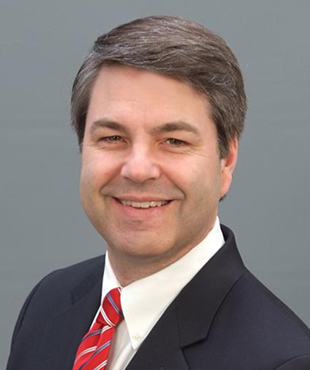CHARLESTON – A bill introduced in the House of Delegates would make major changes to how asbestos lawsuits are filed in West Virginia.
House Bill 2495 was introduced last month by Steve Westfall (R-Jackson) and Assistant Majority Leader Kayla Kessinger (R-Fayette). Most of the changes to state code included in the legislation have to do with the common practice of some plaintiffs’ attorneys to include dozens and dozens of defendants.
A national defense expert in asbestos litigation reform explained it.

“Many defendants named in asbestos complaints have no connection or liability for plaintiffs’ injuries,” Mark Behrens, an attorney for Shook Hardy Bacon in Washington, D.C., told The West Virginia Record. “Rather, as plaintiff’s lawyers cast a wider net to capture solvent defendants, they ensnare many innocent companies in the process – just like a fishing net for tuna ensnares dolphins as by-catch. This type of lawsuit abuse is known as over-naming.
“The purpose of this disclosure bill is to eliminate the erroneous naming of defendants that do not belong in the lawsuits where there is no evidence the plaintiff ever was exposed to their products.”
Behrens said the more people who follow asbestos litigation look at the issue, the bigger the problem seems to be.
“It’s a nationwide epidemic, and West Virginia clearly is at the epicenter of this epidemic,” he said.
Behrens said the first asbestos lawsuits named only a handful of companies, such as major asbestos insulation companies. In the early 2000s, he said virtually all of the companies that made up the asbestos industry were forced into bankruptcy.
“When these companies went bankrupt and became immune from lawsuits, plaintiffs’ attorneys went on the search for new pockets to sue,” Behrens said. “The litigation became what one plaintiff attorney described as ‘an endless search for an innocent bystander.’”
Behrens said more than 10,000 companies have been named in asbestos lawsuits. He said the number of defendants named in West Virginia asbestos cases averages 120 right now, compared to 60 in neighboring Ohio.
“In casting that wide net, the plaintiffs’ attorneys are not focusing on just the companies that belong in the case,” he said. “The attitude is sue first and discover the facts later.
“This legislation simply would require plaintiffs’ attorneys to disclose at the outset of a lawsuit the evidentiary basis for the claims against each defendant in the case. That’s all it’s doing. Tell us why you’re suing each company.”
Last year, Iowa became the first state to enact such legislation.
“We have no heard of any problems with the Iowa disclosure bill since it was enacted a year ago,” Behrens said.
Behrens said the purpose of the bill isn’t to “take money out of the pockets of the plaintiffs’ lawyers.
“It’s meant to take these unnecessary defendants out of the case,” he said. “When a company is named in a lawsuit, the defense lawyers open a file. And that means there is money being spent on litigation costs that ultimately never goes to benefit sick people. It just goes to helping defense law firms.
“Right now, with COVID, many businesses are struggling. When they have money, it should go to paying their employees or to people who have a legitimate reason to sue them.”
Behrens mentioned how Circuit Court Judge Ronald Wilson chastised attorneys last year for including too many businesses in asbestos cases, making it too difficult to mediate.
“If we can get from the over-naming to narrowing litigation to parties who truly belong in the case, this will allow judges like Judge Wilson to mediate these cases and result in less litigation costs and faster payments to plaintiffs.
“We see it as a win-win for everybody.”
He also said a smaller legitimate defendant list would allow cases to be resolve more quickly.
“Giving more information to the defendants who do belong in the case will allow them to assess the value and merits of the case and be able to resolve it more quickly,” Behrens said. “It’s just basic information about a case that would routinely be found through discovery. It simply changes the timing of disclosure. And, defendants that are discovered to not truly aren’t supposed to be involved in the case still could be removed later.”
Behrens said he doesn’t see the benefit for plaintiffs’ attorneys by including unnecessary defendants in these cases.
“First, they aren’t making money from these companies,” he said. “I think the reason plaintiffs’ attorneys do it because they’re covering all of their bases.
“I think they’d tell you something like, ‘We cast this wide net because if we narrow the list at the beginning, and the statute of limitations runs, we can’t sue those companies. If we don’t name them at the beginning, we can’t pull them in later. It’s easier for them to name 400 people and then drop them out as the information comes out that they never belonged in the case than to start with 20 and run the risk of not being able to add others later.’ They err on the side of caution rather than be judicious up front.
“But, where you have 400 companies that are dropped from every asbestos lawsuit, the need to include them is unfounded. The plaintiffs’ attorneys never are going to be able to pull these companies in.
“Over-naming is an enormous cost on businesses just as an insurance that there might be one defendant on the list they might want to pursue later.”
The proposed legislation also would no longer hold product liability defendants liable for exposures from later-added materials made or sold by a third party. It also would allow the consolidation of any asbestos or silica actions with the consent of all parties.
The bill was introduced February 15 and referred to the House Judiciary Committee.
